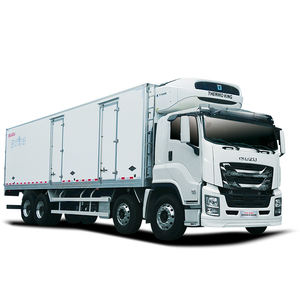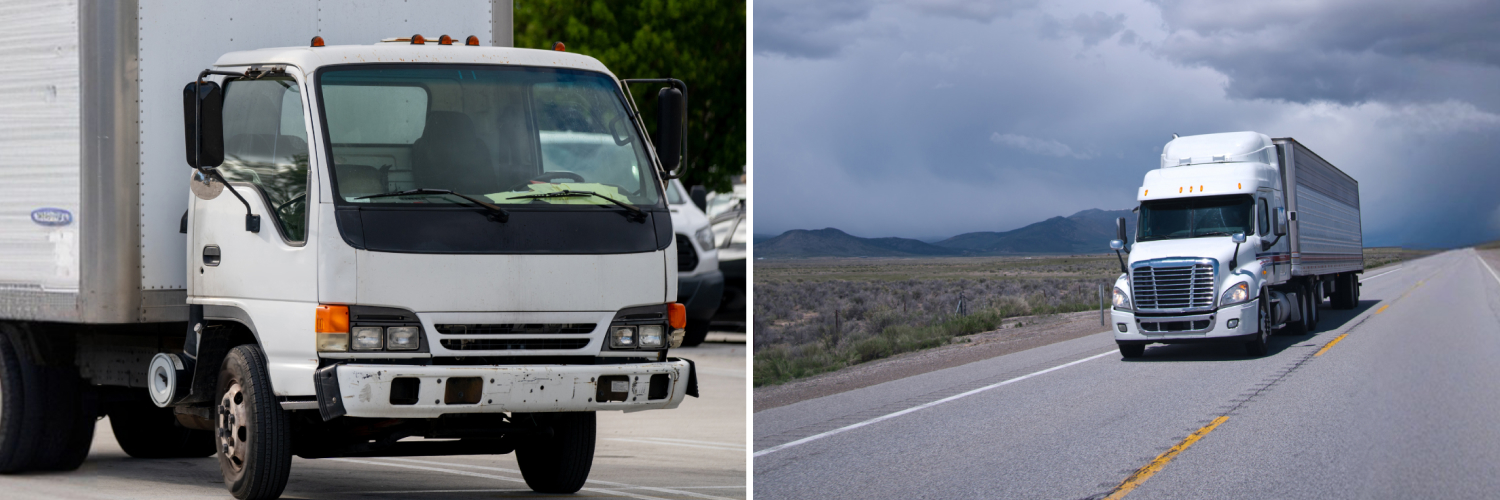Thermo King Transport Refrigeration: Top Quality Air Conditioning for Freight
Thermo King Transport Refrigeration: Top Quality Air Conditioning for Freight
Blog Article
Leading Technologies in Transportation Refrigeration: Enhancing Efficiency and Safety And Security
The landscape of transport refrigeration is going through substantial transformation, driven by innovations aimed at improving both effectiveness and safety. As these innovations continue to advance, it is necessary to discover their implications on operational methods and governing compliance, prompting a better assessment of how they reshape the future of transportation refrigeration.
Smart Temperature Level Monitoring Solutions
In the world of transport refrigeration, smart temperature surveillance systems have actually become an important technology for ensuring the integrity of temperature-sensitive goods. These sophisticated systems take advantage of Net of Points (IoT) technology to provide real-time data on temperature fluctuations, making it possible for drivers to keep optimum problems throughout the supply chain. By constantly tracking the temperature of refrigerated containers and cars, business can quickly recognize deviations that may compromise item top quality.

Additionally, clever tracking systems frequently integrate automated alerts and alerts, allowing stakeholders to respond promptly to any kind of prospective concerns. This proactive method not just reduces the risk of wasting yet also improves conformity with governing standards regulating food safety and security and pharmaceutical transport.
The integration of information analytics within these systems also promotes anticipating upkeep, helping operators to foresee prospective tools failings prior to they occur. This capacity reduces downtime and maximizes functional efficiency, eventually resulting in cost financial savings.
Eco-Friendly Refrigerants
Smart temperature level surveillance systems play a crucial role in keeping product high quality, but the efficiency of transport refrigeration likewise rests on the choice of cooling agents utilized. As environmental worries rise, the change in the direction of environment-friendly refrigerants has actually become imperative. Standard cooling agents, such as hydrofluorocarbons (HFCs), are notorious for their high Global Warming Potential (GWP), adding considerably to environment adjustment. In contrast, emerging options like hydrocarbon-based cooling agents and hydrofluoroolefins (HFOs) existing lower GWP choices, using both effectiveness and sustainability.
These environmentally friendly cooling agents not just minimize environmental effect however likewise line up with worldwide regulations aimed at eliminating damaging compounds. Their adoption can result in improved energy effectiveness, eventually minimizing operating expense for transport refrigeration systems. The usage of all-natural cooling agents, such as ammonia and carbon dioxide, has actually obtained grip due to their exceptional thermodynamic homes and lower environmental footprint.
Purchasing environment-friendly refrigerants is not merely a regulatory conformity measure; it stands for a calculated choice that improves brand track record and promotes customer commitment. thermo king transport refrigeration. By focusing on lasting methods, business can add to a greener future while ensuring the stability of carried products
Advanced Insulation Materials
Making use of sophisticated insulation materials is important for enhancing transport refrigeration systems, as they considerably boost energy efficiency and preserve consistent temperature control. Typical insulation techniques often drop short in stopping thermal transfer, causing enhanced power consumption and changing temperature levels within cooled areas.
Arising products such as vacuum protected panels (VIPs) and aerogels offer remarkable thermal resistance, enabling thinner accounts without jeopardizing efficiency. VIPs, for instance, utilize a vacuum cleaner layer to decrease conductive and convective warmth transfer, making them perfect for space-constrained applications. Aerogels, understood for their porous and light-weight structure, supply remarkable insulation while substantially lowering overall system weight.
Moreover, integrating stage modification materials (PCMs) right into insulation systems can even more maintain temperature levels during transit. These materials soak up and launch thermal energy, efficiently buffering against outside temperature level variants.
The integration of these advanced insulation materials not only reduces the operational costs connected with power usage yet additionally expands the life span of temperature-sensitive items. As the transport refrigeration industry remains to advance, the fostering of cutting-edge insulation modern technologies will be crucial in boosting both effectiveness and safety and security in chilled transportation.
Automated Path Optimization
The efficiency of transportation refrigeration systems is significantly improved through automated course optimization, imp source which leverages real-time information and innovative algorithms to figure out one of the most efficient paths for distribution. By examining various aspects such as traffic patterns, weather condition problems, and distribution windows, these systems can substantially decrease traveling time and gas intake.
Automated course optimization lessens human error and subjective decision-making, which can lead to inefficiencies. This modern technology makes it possible for fleet supervisors to designate sources extra properly, making sure that refrigerated products keep their needed temperature throughout the trip. By maximizing routes, firms can likewise enhance consumer complete satisfaction with prompt shipments.
Moreover, automated systems can adjust to unforeseen conditions, such as roadway closures or sudden traffic spikes, enabling for dynamic rerouting. This versatility not only secures the stability of temperature-sensitive items but additionally adds to overall functional performance.
Executing automated course optimization can result in substantial cost financial savings while reducing visit their website the carbon impact associated with transportation. As businesses progressively focus on sustainability, this innovation sticks out as an important part in modern-day transport refrigeration, lining up functional objectives with environmental responsibility. Eventually, automated course optimization represents a considerable innovation in the pursuit for efficiency and safety and security in transport refrigeration.

Real-Time Data Analytics
Automated path optimization considerably benefits from the assimilation of real-time data analytics, which provides important understandings into the efficiency of transportation refrigeration systems. By utilizing real-time information, transport operators can keep track of temperature changes and equipment performance, ensuring that disposable items are preserved within required parameters throughout transit. This aggressive technique not just enhances the quality of the moved products yet likewise mitigates the danger of wasting and loss.

Along with enhancing efficiency, real-time analytics boosts safety and security by making sure compliance with regulatory requirements for temperature control. This not only shields public health and wellness but additionally strengthens a firm's reputation - thermo king truck refrigeration. As the transport refrigeration market develops, the assimilation of real-time data analytics emerges as a keystone his response for driving advancement, sustainability, and operational quality
Conclusion
In verdict, the developments in transport refrigeration dramatically boost both efficiency and security within the sector. Collectively, these developments represent an important advancement in transportation refrigeration, making sure conformity with governing criteria and advertising a greener future.
The landscape of transportation refrigeration is undertaking substantial improvement, driven by technologies intended at boosting both performance and safety and security.Smart temperature level surveillance systems play a crucial function in keeping item top quality, yet the performance of transportation refrigeration additionally pivots on the selection of cooling agents made use of. Their fostering can lead to improved energy efficiency, ultimately decreasing operating costs for transport refrigeration systems. Inevitably, automated course optimization represents a considerable improvement in the mission for effectiveness and safety in transportation refrigeration.
In final thought, the improvements in transport refrigeration considerably enhance both performance and safety and security within the market.
Report this page